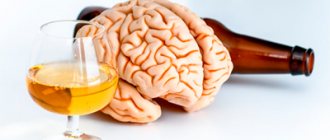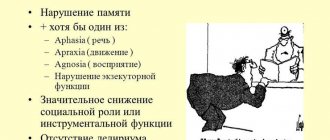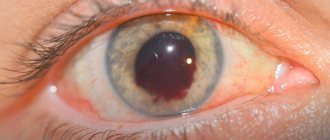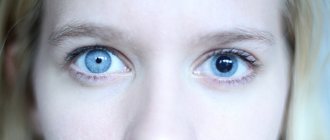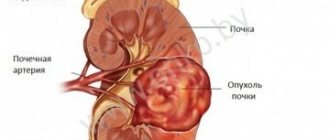What is money for the brain?
Andrey Sokol - neuroanatomist, candidate of medical sciences, associate professor of the department of normal anatomy of the Belarusian State Medical University, neurologist, CEO of Hypnopedia.
Andrey, what does science say - how is the work of the brain and its structure related to material well-being? Is there a special “compartment” in the brain dedicated to money?
Money itself is a very young phenomenon in culture; it is about 7,000 years old. This period is nothing compared to the evolution of the brain. He has not yet had time to rebuild and form a “separate area” that is responsible for money.
But what is money for the brain? Is there something similar that he reacts to in a similar way?
The brain now processes information about finances through areas that are associated with fear, risk and, above all, pleasure. And, for example, the brain’s reaction is almost the same to the potential profit and the effects of drugs.
Is there an innate predisposition to wealth?
Probably not. You can get some bonus, but no more.
Even though the brain of each of us is unique, the size of the brain and its parts in itself does not mean anything.
This is just potential - functional activity is much more important. For example, Einstein's brain size was smaller than the average, and if you take a child even with the most developed brain and isolate him from communication and development, he will turn into Mowgli.
Don't forget about social elevators and simple coincidences. It has been scientifically proven that rich people are often overconfident and tend to neutralize these circumstances. They do not believe that anyone helped them and believe that they have achieved everything themselves.
The brain does not see the difference between reality and imagination
The brain reacts equally to everything you think about. In this sense, for him there is no difference between objective reality and your fantasies. For this reason, the so-called placebo effect is possible.
If your brain thinks you're taking a pharmaceutical drug (not a sugar pill), it reacts accordingly. I drank a placebo, thinking it was aspirin, and the brain would tell the body to lower its body temperature.
The nocebo effect works in exactly the same way, but in the opposite direction. If a hypochondriac watches the evening news and hears about a new disease outbreak, he may even begin to physically feel its symptoms.
The good news is that if you look at the world with rose-colored glasses, you probably feel happy more often due to abnormally high levels of serotonin (the joy hormone) in the blood. Any constructive thought or dreams about a bright future can improve your physical condition right here and now.
Two systems
Explain how our brain works in general and how its parts influence our attitude towards money?
All of our mental activities, including making money, can be seen as a struggle between the prefrontal cortex and the limbic system.
The limbic system is our emotions, an ancient part of the brain that acts intuitively and instantly, even before we have time to realize anything. When our ancestors did not yet have complex systems of analysis, it helped them make decisions.
The limbic system of the brain includes a number of areas, including the nucleus accumbens, which is responsible for positive reward responses, and the insular cortex, the center responsible for irritation and aversion. By observing their activity, we can predict whether a person will make a risky decision. The insular cortex tries to avoid risk, while the nucleus accumbens, on the contrary, encourages such behavior.
Photo: Myfin.by
The prefrontal cortex is a new part of the brain. More “smart”, but also slower, lazy and energy-consuming. This is the highest cognitive center, which is responsible for concentration and helps keep the limbic system under control. In addition, here the brain stores the necessary information to solve current problems. Roughly speaking, this is our intelligence.
Increase your concentration
In addition to improving your memory, exercise can help you concentrate better on a task. The most scientifically convincing studies are those conducted with schoolchildren, but most likely the same applies to all ages.
Exercising with 20-minute aerobic exercise breaks improved concentration in Dutch schoolchildren. Meanwhile, a large randomized controlled trial in the United States examined the effects of daily exercise after school during the school year. Naturally, the children's physical fitness has improved. Less predictable was the increase in self-control. Children became less distracted by external stimuli, were able to perform several tasks at once, and also improved their skills in remembering and using information.
And if all this seems like hard work, you don’t even have to hold your breath to reap the benefits of attention training exercises. Just 10 minutes of game-based concentration exercises, such as hitting a ball on the floor with both hands at the same time, improved the concentration of a large group of German teenagers.
Hormones, money and the brain
Andrey, what else influences your attitude towards money?
The amygdala (responsible for fear and aggression), the cingulate cortex (is an error detector and is responsible for conformity), and the hippocampus (responsible for short-term memory).
The consequences of disturbances in these areas of the brain can lead to startling results. For example, scientist Antonio Damasio studied patients with destroyed prefrontal cortex and amygdala. At first he suggested that perhaps they would have an advantage in doing business because they were not afraid. However, research has shown that these patients suffer from serious problems in decision-making due to a lack of emotional response to their own mistakes. They step on the same rake over and over again.
What about hormones?
Yes, them too. To become successful, we need to be active, and for energy we need the activity of the reticular formation - this is a collection of neurons that provides us with energy. In addition, this area is responsible for the secretion of a number of hormones, for example, serotonin - the “happiness hormone”, which ensures resistance to stress. Dopamine is released when a person, from his point of view, is doing the right thing, and gives us a feeling of confidence and logic in the world around us.
Lack of dopamine leads to a feeling of meaninglessness of existence, apathy and melancholy, as a result of which we experience problems with decision making.
And oxytocin, the “trust” hormone, reduces anxiety and fear, gives harmony, confidence and strengthens human relationships. It has been proven that people with normal or higher levels of oxytocin are more likely to make deals than others.
Making decisions, including those related to money, strongly depends on mood, which is perfectly demonstrated by one experiment. Before it began, the scientists asked one group of people to watch a drama and a second group to watch a more neutral film or comedy. People who watched the drama were much more likely to reject unfair financial decisions after playing the game.
Sentinel in my head
- Intuition, inner voice, sixth sense - what is it?
— I think it’s the experience accumulated over a lifetime and a subconscious analysis of the situation. For example, a person sees signs of danger, but does not have time to fully understand what he sees. However, based on these signs, the brain gives a command with lightning speed, which we consider to be a hint from the inner voice. We can instinctively stop in the middle of the street or, on the contrary, sharply speed up our pace, noticing out of the corner of our eye an icicle or brick falling from the roof.
The human brain has a mechanism for comparing a real situation with a control one - that is, a certain matrix of stereotypes. Figuratively speaking, there is a sentry on duty in our head all the time, who collects the overall picture, processes it, consolidates it, and then monitors the current situation, checking whether anything has changed. If changes occur, a signal appears in the brain - vague anxiety, a feeling that something is wrong. Note: the brain does not say what exactly is wrong, but simply “spoils your mood.” The task of the “sentinel” is to monitor deviations from the standard and pay attention to them, and then let the person decide for himself what to do.
Question answer
What is the left hemisphere of the brain responsible for?
- But then why does such vague anxiety often appear long before the event? What is this - foresight?
- I’ll answer with a saying: “If Mr. Hussar goes to play cards all night, then during the day, when nothing has happened yet, his wife is already starting to worry whether he will lose to smithereens.” In other words, you roughly understand what bad things can happen, and you begin to worry in advance, assessing the chances of success. Foresight is an analysis of a situation.
— How great is the influence of human will, in your opinion? Where is the line beyond which she is no longer powerless? Or is a person capable of anything until he dies?
- Of course not, I’m not capable. This trait is a departure from the normal situation: a serious illness, serious injury, drug poisoning... The brain works well in conditions of stability. When emerging instabilities are kept within limits, he smoothes them out perfectly. But there are situations when nothing will help: there will be willpower, there will be no willpower - that’s all. For example, there are influences against which the brain is powerless: if certain substances are introduced into the body, for example psychotropic or narcotic substances, then resistance is almost impossible. There are legends about strong-willed intelligence officers who remained silent under any torture. But after treatment with special psychotropic drugs, a person loses his will and answers any question.
Question answer
What is the right hemisphere of the brain responsible for?
— You, among other things, explore the phenomenon of creativity in man - the “divine spark,” as they say.
If it's not a secret, on what devices is this done? — There are quite a lot of them: positron emission tomograph, magnetic resonance imaging, various devices using modern electroencephalography methods. We invite people to perform certain creative tasks - for example, come up with a non-standard phrase. And we see on the devices how the brain functions in this situation.
Creativity is perhaps the only activity that activates the entire brain. For example, when you are just having a conversation, the area of the brain near your temple is activated, and when you listen to a speech, the area is slightly behind. This does not happen with creativity, because the person does not know what resources will be needed to solve the problem. Oddly enough, the same neurons are involved in the process of thinking, in performing certain actions, and in controlling the functions of internal organs.
The last scientific monograph of my mother, Natalya Petrovna Bekhtereva, was written on the topic “Smart people live longer.” The famous gerontologist Vladimir Anisimov speaks about the same thing: scientists in those specialties where creativity is mandatory can often boast of their longevity.
Revealing the secrets of the brain. Natalya Bekhtereva knew the secret of longevity Read more
Which hemisphere has more money?
It is widely believed that either one hemisphere works or the other...
It does not happen that only one of the hemispheres works normally. It is more correct to talk about the predominance of activity of one of the halves of the brain, depending on the task at hand. The experiment showed that when the activity of the prefrontal cortex of the right hemisphere was reduced, the subjects made unfair decisions much more often than those participants who had the activity of the left hemisphere suppressed.
Regions of the brain do not work in isolation, and the more complex the task, the more brain regions are involved in its processing, forming a neural network.
When a person selectively focuses his attention, the control network is activated, and when we are not doing anything in particular, the passive mode network of the brain is activated.
But passive mode does not mean useless - we owe creative insights to this neural network. Thus, if the work requires you to make a specific decision, it is advisable to keep yourself within the control network, while in order to gain creative insights, it is logical, on the contrary, to “let go” of yourself a little and, for example, take a walk in the park.
Does money spoil a person or does a person who is able to earn a lot initially not have high morals?
I'm sure both expressions are correct. In favor of the first, one can cite an experiment with the game of classical monopoly. The amount of winnings directly correlated with rude and defiant behavior towards other players.
As psychologist Vladlen Pisarev recently noted in an interview: “The path to wealth is the presence of enormous greed and sufficient stinginess. Greed is needed to get more and more, and stinginess is needed so as not to lose what has been accumulated.” And if you season this with a sufficiently high intelligence, you get an explosive mixture that greatly increases your chances of getting rich.
Improve your mental health
Whether you like it or not, physical activity can have a powerful impact on your mood. Runner's euphoria - the feeling of elation that comes after prolonged and intense exercise - is an absolutely real phenomenon. Even mice experience it. However, it may not be due to an “endorphin rush.” Levels of opioids produced by the body increase in the bloodstream, but it is unclear how many endorphins actually make it to the brain. At the same time, recent evidence points to a pleasant and pain-relieving stimulation of the endocannabinoid system: the psychoactive receptor for cannabis.
What about yoga? Does it help with stress? When anxiety occurs, tension levels increase, heart rate increases, and concentration decreases. The body's fight-or-flight response to stress is automatic, but that doesn't mean it can't be controlled at all.
Yoga teaches control of movement and breathing in order to enable the “relaxation” mode of the body. There is more and more scientific evidence of the benefits of yoga. For example, in a 2010 study, participants did yoga and meditation daily for 8 weeks. In addition to reducing stress levels, brain scans showed a decrease in the size of the amygdala, an area of the brain that plays a large role in stress, fear and anxiety.
Exercise also seems to be a promising way to combat depression. A 2013 meta-analysis cautiously concluded that exercise—both aerobic and resistance—was “moderately effective” in relieving symptoms of depression. Exercise has been shown to be as effective as antidepressants and psychological treatments, but the study authors say this is an area that needs more research.
Brain and freebie
Why do we often look for easy ways to solve problems, including “easy” money and freebies?
Because the brain was not created to work hard.
It is evolutionarily conceived that the brain needs to save resources; it tries to do this whenever possible and encourages laziness in every possible way.
The result of an experiment in which people were asked to click on several pictures on a computer screen was a revelation for me. Some pictures showed a man resting, while others showed him working. It turned out that our brain resists even clicking on pictures that depict a working person.
Photo: Myfin.by
And the origins of the craving for “freebies” and their consequences are demonstrated by one experiment. Children were offered to take one treat now or two treats later. The vast majority of those who chose to take one delicacy now failed to achieve serious financial solvency in adulthood. Scientists conducted the same test with adults, only instead of marshmallows there was money. It turned out that people who chose less money rely more on the limbic system - it is its activity that is responsible for the craving for freebies.
Is it possible to overcome this tendency?
If we are talking about a healthy brain, then yes. Thanks to the phenomenon of neuroplasticity - the ability of the brain to rebuild neural connections depending on the tasks that a person sets for himself. The ability to think critically is a skill that can and should be mastered.
Much depends on the concentration of biologically active substances. For example, a person with low dopamine levels may find it difficult to force themselves to do something and will look for easier ways.
What is IQ
IQ is the intelligence quotient adopted in 1912. It is determined by solving test problems, each of which should be different in complexity.
1. IQ 70 is the lowest.
2. The IQ of an ordinary person is 100.
3. An IQ score above 100 determines a person’s increased abilities.
For example, the average Japanese IQ is 111. Only 10% of Japanese have an IQ of 130.
Is it possible to increase your IQ level? American doctor Andrea Kuszewski, at the beginning of her career, worked with a mentally retarded child. She developed a program that ran classes for three years. As a result, the child’s IQ after completing the course was 100.
After the experiments, the following conclusion was drawn:
• mental abilities can be trained;
• you can start training at any age;
• anyone can improve their abilities.
Where to begin?
A person uses approximately 5% of the brain's capacity, or 10% at best.
This body has protection that allows you to use the opportunities for as long as is currently required.
There are several rules for those who want to increase their IQ level:
1. Steadily “feed” your mind with healthy food. You can solve mathematical or logical problems, master a musical instrument or study foreign languages, explore countries while traveling.
2. The best way to train (for some) is computer games.
3. Extraordinary abilities are developed by solving one problem using several options.
4. Complex solutions to any problem should be chosen.
It has been proven that you need to develop mental abilities under stable loads. You can start by solving simple problems. In other words, go from simple to complex:
• solve crosswords;
• read books, newspapers;
• learn poetry;
• solve mathematical problems;
• remember information read;
• study languages;
• master a computer that helps you control your own emotions.
It doesn't take much time to complete these loads. Just half an hour a day is worth spending on exercise to maintain adequate brain activity until old age. It is necessary to improve the abilities of the human brain at any age.
As a result, after such classes a person receives:
• blood circulation will improve, that is, brain nutrition;
• the result of training promotes unlimited perception of information;
• the risk of developing age-related diseases or diseases like depression will significantly decrease.
Interesting! A sign of concern should be deterioration in memory. In such a situation, computer games can be recommended. It has been noticed that people who play computer games remember information better, and they also have a high reaction speed. It is the speed of reaction to an unusual situation that can reflect the state of brain activity.
PsyAndNeuro.ru
He shouted: “Hello, head!”
(A.S. Pushkin “Ruslan and Lyudmila”)
The head in this film belongs to the fiancee of a doctor-inventor who was in a car accident. The doctor brings the severed head to his private laboratory in time, places the head in a miracle device and saves her life.
As soon as the head begins to realize what is happening, the doctor tells it about his plan - to restore its entire existence, that is, to reunite the head with the body. It sounds as if his fiancée is not alive, and although she engages in reasonable dialogue, she cannot be considered truly alive. The implication is that reviving the head of a nearly dead person is only an initial stage, not sufficient to consider the person brought back to life. A head without a body, even with restored cognitive functions, is not perceived as a full-fledged person.
Full interpersonal communication is established immediately after the head is revived. In theory, the doctor should be happy that his fiancee's identity has not disappeared. Memory, speech, all signs of self-awareness, affects, motivations and values - everything is the same as before the beheading. It would seem that this is enough to consider resuscitation successful.
The doctor is not alone in thinking that the experiment cannot be considered complete until the head is attached to the body. His assistant has his own point of view - he talks about the impermissibility of violating the natural order. This does not mean that such medical operations break the eternal life cycle, which always ends in death. Natural order is the default completeness of the human body. To be human, you need to have not only a brain, but also a heart, as well as other internal organs, a torso and limbs.
When, at the very beginning of the film, the main character’s father teaches him during an operation: “Don’t damage the motor areas in the brain, otherwise the patient will be paralyzed,” the main character answers philosophically: “What is better - to be dead or paralyzed?” This Hamleto-Mephistophelian gloomy reverie hints to the viewer that ultimately the intentions of the fanatical inventor are bad and inhumane. He will disrupt the natural order as he sees fit.
After reviving the head of the woman he loved, he voiced the dilemma “Be dead or paralyzed?” evaporates somewhere. Without hesitation, he rushes to complete the bride’s physicality. He doesn’t want to bring her back to life, leaving her paralyzed—virtually disembodied. The head, for its part, just as quickly resolves this issue - it does not want to live without a body and asks to be killed. It turns out that both people directly involved in the experiment do not recognize the life of the head as worthy of preservation.
Phenomenologists, starting with Husserl, write about corporeality as a necessary condition for the existence of subjectivity. The attempt to refute this thesis shown in the film turns into a nightmare game in which futuristic transplantology conflicts with the phenomenology of the body.
The existence of a personality outside the body is acceptable in religious anthropology, but when an experiment to separate subjectivity from corporeality is carried out in the space of science, it causes horror among observers. In a sense, we are more accustomed to imagining the human personality as completely devoid of a material shell, like a ghost or pure spirit. But the head-man is disgusting in the extreme and disgusting even to himself.
In this film, what remains after a plane crash is not a head, but the brain of a millionaire named Donovan, which is placed in a kind of aquarium. The author of the experiment judges that the brain is alive by the presence of electrical activity. The recording of alpha waves becomes the basis for the process of communication with the human brain.
The famous philosophical thought experiment “brain in a flask” received an excellent artistic embodiment in the film “The Matrix” (1999). “Brain in a Flask” is a philosophical fantasy about a brain that, in a laboratory setting, receives exactly the same stimuli that the brain receives under normal circumstances while in the cranium. To do this, the laboratory must operate a powerful computer capable of producing countless stimuli that add up to a complete simulation of the world. The responses are processed by a computer and included in the simulation. The state of the “brain in a flask” is no different from the state of the brain in a living person, with the exception that the brain exists in isolation from the body.
In “Donovan's Brain,” the brain is housed in a laboratory vessel. There is no such literalness in The Matrix, but that is not the main difference. In Donovan’s Brain, communication develops not in the same way as in The Matrix, but in the opposite direction - the brain does not passively perceive stimuli from the outside, but itself becomes a subject influencing people.
The experimenter, by the way, voices the shortest definition of personality, which, in his opinion, is stored in the brain separated from the body:
“The brain contains knowledge and experience, that is, thoughts.”
Devoid of any sensory sensors, the brain is information blind. Unlike the people in The Matrix and unlike the original brain-in-a-flask experiment, Donovan's brain does not receive any input from the outside; it exists in isolation from the world. In a pathological condition known as locked-in syndrome, the patient is unable to respond to stimuli, but at least detects their occurrence. Donovan's brain is “locked” into itself, no stimuli reach it and there is nothing to react to.
The thoughts that the author of the experiment talks about in such a situation can really only unfold around the accumulated experience of the past. Over time, Donovan's memory will be enriched by the experience of the existence of a brain outside the body. Will the nature of the thought process then change?
Somehow, Donovan's brain still gains access to information from the outside world. When the doctor taps the fish tank, instruments connected to the brain show vibrations of alpha waves. It is not clear how the brain hears this knock, because it is deprived of all input “devices”. According to the logic of the film, the brain turns into an independent living being with a special, unlike anything else, system of orientation in the world. The brain moves as if it were breathing and even grows in size. This is no longer an internal organ separated from a person, but a representative of a new species of living beings.
The experimenter wants to create something like a decoder that converts electrical impulses from the brain into sound waves. Then he could literally “hear” Donovan's brain thinking.
It turns out that the sounds of brain activity have a hypnotic effect. Under their influence, the scientist loses his will and turns into a zombified servant of the brain, pulsating in an aquarium.
The brain thus becomes not just an independent being, but more powerful than humans. And not just stronger, but also malicious. Being in the skull of a living person, it was not like that. Malice appears after he is not allowed to die and is forced to exist in an unnatural form, as was done with the head of the heroine of the film “The Brain That Couldn’t Die.” But if the head in that film was unhappy and powerless, then Donovan's brain is angry and armed with mysterious telepathic abilities.
The Doctor actually becomes an obedient zombie, an agent of someone else's will. What takes control of Donovan's brain? The doctor's brain or his body? If someone else's brain controls only the body, then the brain of the controlled person must “turn off”, yielding power over the body to another control center. Then the doctor would be in a somnambulistic state, but in the film he quite consciously performs complex actions.
Can Donovan's brain command someone else's body without shutting down the other person's brain? A positive answer means the possibility of coexistence of two wills in one person. The plot with the duality of consciousness and will simultaneously refers to two, at first glance, having nothing in common discourses - neurophysiological (experiments with the dissection of nerve pathways connecting the hemispheres) and theological-philosophical (disputes about the number of wills in Jesus Christ). The plot twist of the film “The Manchurian Candidate,” which I wrote about elsewhere, leads the thoughtful viewer approximately in the same direction.
The experimenter in this film (as always, working in his own laboratory, without the support of any scientific institutions) repeats the legendary experiments of the Soviet physiologist Sergei Bryukhonenko (1890-1960) with artificial blood supply to the severed head of a dog. After his sudden death, the scientist's assistant, Dr. Oud, reanimates his head, and then embarks on a plan similar to what they tried to implement in the film “The Brain That Couldn't Die.” He wants to cut off the head of a crippled girl he likes and sew it onto the perfect body of a stripper.
Dr. Oud is the personification of unethicality in science. Actually, he is Satan. Reanimation of the head in all three films is presented as a diabolical project that under no circumstances can be useful to people. The unethical scientist in pop culture almost always looks like this. He remakes the world, ignoring morality, because for the devilishly perfect mind everything moral is relative.
As in “The Brain That Couldn’t Die,” a sex worker is chosen as the body donor. This probably means that her body has already been degraded to the level of a soulless object by the business in which she works.
A head living without a body is in itself uninteresting. Dr. Oud, like the heroes of the other two films (to which we can add Professor Kern from Alexander Belyaev’s novel “The Head of Professor Dowell” in 1925), sees in the revival of the head only a preliminary stage of an experiment to revive a person through a head transplant. None of the science fiction film experimenters is satisfied with the fact that they were able to practically immortalize the human brain.
In these stories, technological success does not make anyone happy. A girl whose body is completely replaced bitterly exclaims: “This is not my body!” Dr. Oud shouts back: “No! This is your body." And each of them is right in their own way.
On the one hand, I have the right to call my
body is a body that is completely, as far as possible from a neuropsychological point of view, under the control of my consciousness, or, better said, under the control of my consciousness. Transplantology of the level that the authors of these three films fantasize about will be able to sequentially supply the human head with several new bodies. It’s scary, of course, to even think about it, but in the interests of neurophilosophical creativity, you can try to imagine not only the sequential, but also the simultaneous attachment of several bodies to one head.
On the other hand, my
the body is the body in which my brain grew. All bodies that will be attached to the mature brain will be foreign. Alien not in the sense in which the donor organ is alien, but alien as the unimaginable and incomprehensible mode of existence of another person. And only the heroes of the film “Nude and Satan” know which catastrophe is more terrible - to be a head without a body or a head with someone else’s body.
Author of the text: Filippov D.S.

